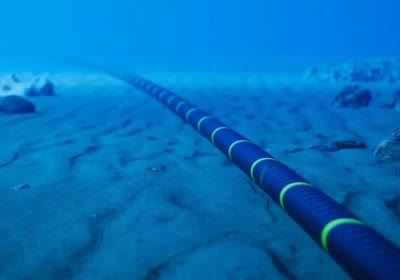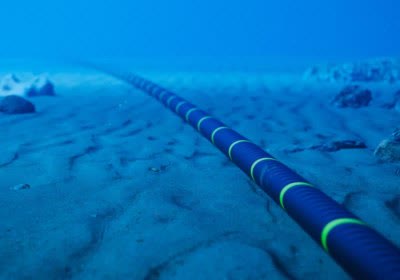Infrastructure articles
Two undersea cables in the Baltic Sea damaged in suspected sabotage
Blame is being directed squarely at Russia
What just happened? Sabotaging undersea internet cables has become a common act of aggression in recent times. Following disruption to two of these cables in the Baltic Sea, including one that appears to have been physically cut, it seems the tactic is once again being employed. And there's no prize for guessing the main suspect.
FLO's new 320kW fast chargers juice EVs up to 80% in 15 minutes
Putting range anxiety in the rearview mirror
As cloud computing evolves, Amazon's AWS looks for its role in generative AI
Amazon unveils new capabilities in Bedrock for improved AI applications
Renewed enthusiasm for 5G infrastructure at MWC 2023
Why it matters: While there hasn't been a whole lot of groundbreaking 5G news on the consumer front for some time, it's clear there's a whole lot of work and innovation happening in another part of the 5G ecosystem: infrastructure. There's growing activity from traditional "compute" industry vendors eager to make an impact on the telco world. Everyone from chip companies like AMD, to server hardware manufacturers such as Dell, to software houses like Red Hat are doubling down on their efforts to help disrupt the market.
Smartphones can help monitor and maintain bridges
The accelerometer in your phone could help detect changes in structural integrity
Damaged European undersea cables impact internet connectivity worldwide
Why it matters: Multiple undersea cables in the south of France were cut overnight, making Internet access unreliable globally. Engineers fixed one broken link, and investigations are still ongoing. Fingers have been pointed at Russian submarines because of the Ukraine conflict, but investigators have not yet found any evidence supporting this assumption.
White hats 'easily' crack a program that controls the world's power grids
Only took two days to bypass authentication
DarkSide was responsible for Colonial Pipeline ransomware attack, promises to pick targets more carefully in the future
The hacker group claims it never wanted to cause "problems for society"
Zoom partners with Oracle to buttress its cloud infrastructure as user base exceeds 300 million
It cannot handle the numbers alone anymore
Vulnerability in industrial software could have spelled disaster for critical infrastructure
Energy, water, nuclear, aviation and more industries narrowly avert crisis
Smart cities are saving residents over 125 hours per year
How would life be without traffic jams?


















